News
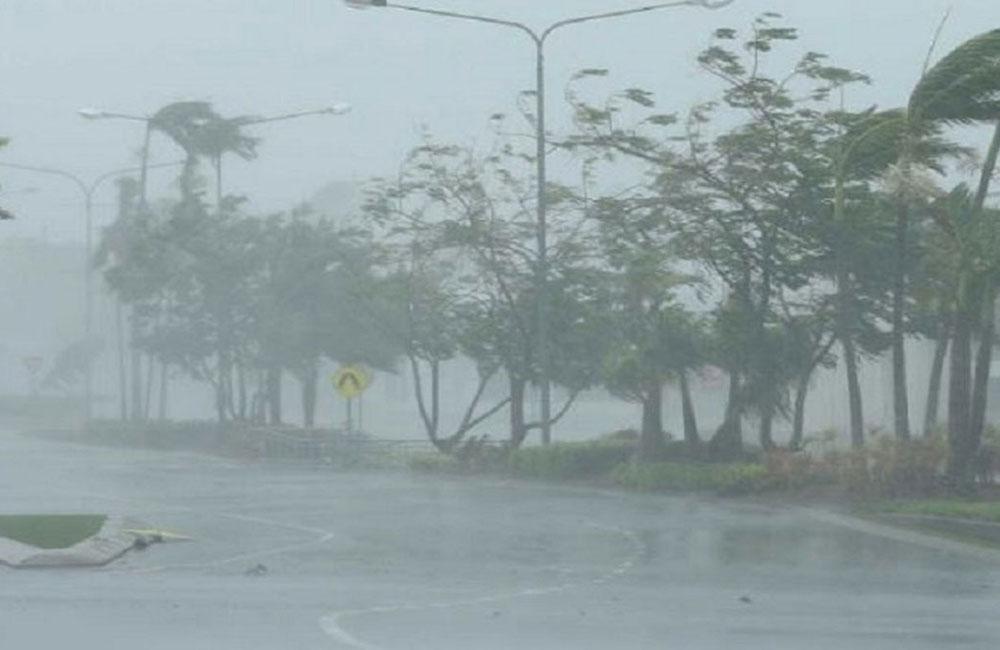
Advisory for heavy showers in the Western, Sabaragamuwa and Southern provinces
Showers or thundershowers will occur at times in the Western, Sabaragamuwa, Southern, Central, and North-Western provinces, The Met Department predicts.
Heavy showers of about 100mm are likely at some places in the Western, Sabaragamuwa, and Southern provinces.
The landslide warning notice issued to four districts in view of the prevailing showers rains will remain in effect until 12 noon today, The National Building Research Organization said.
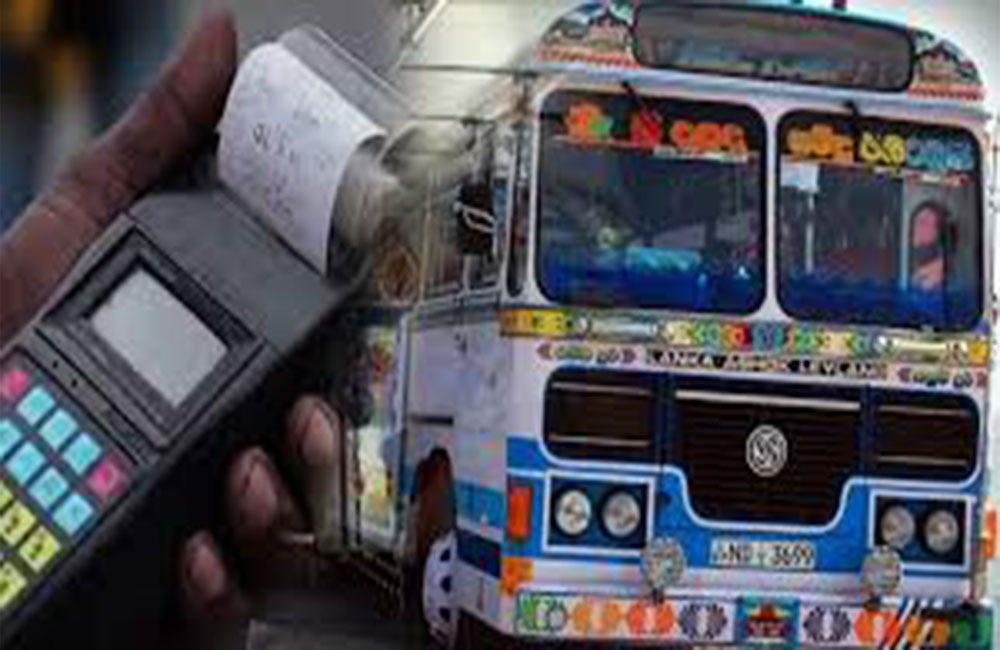
New increased bus fares announced
The fares of several transportation services in Sri Lanka have been increased following the recent fuel price revision.
The Association of Container Transporters has announced that container haulage charges will be increased by 5%.
The Association further said that the price hike will come into effect from midnight today (Sep 01).
Meanwhile, the National Transport Commission (NTC) announced that bus fares will be increased by 4.01% from midnight tomorrow (Sep 02).
The NTC further stated that, however, the minimum fare will remain unchanged.



Another 400 types of medicines imported under emergency purchases
According to the Ministry of Health, 400 types of medicines have been bought under emergency purchases and distributed to hospitals.
Its Additional Secretary Dr. Saman Rathnayake stated that 378 types of medicines received under the Indian credit line have also been distributed to hospitals.
However, there is a shortage of 77 types of medicines in hospitals, he said.
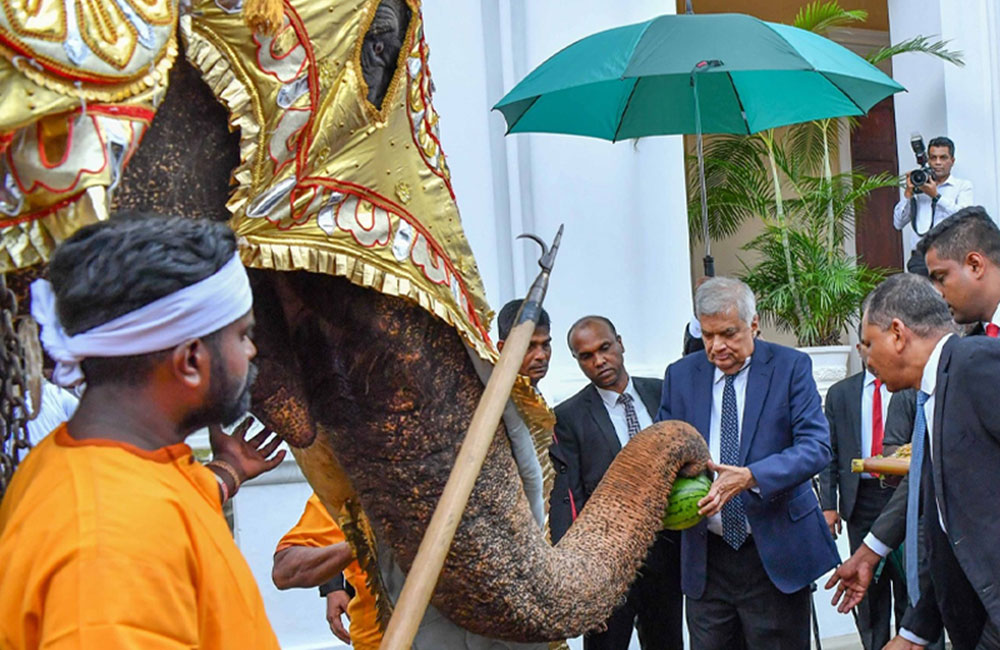
Elephants in Perahera : President emphasizes preserving ancient customs
Acknowledging the importance of elephant protection during Peraheras in Sri Lanka, President Ranil Wickremesinghe underscored the need to preserve and uphold the nation’s ancient customs.
President Wickremesinghe called for the resolution of challenges such as acquiring tame elephants for the Perahera through constructive negotiations.
Additionally, the President noted that Kandy’s esteemed Esala Maha Perahera would hold a special place in a program designed to enhance progress in Sri Lanka’s tourism sector by the upcoming year.
Expressing his deep gratitude to all those who supported the Perahera, President Ranil Wickremesinghe emphasized the significance of safeguarding the historical Kandy Esala Perahera.
He highlighted that this event was not only a religious and national celebration but also a grand cultural festival that showcased Sri Lankan heritage on the global stage.
President Wickremesinghe further stressed the importance of carrying this legacy forward.
According to the President’s Media Division (PMD), President Wickremesinghe made the remarks during a ceremony held in Kandy yesterday (Aug. 31).
During the ceremony, the Diyawadana Nilame of Sri Dalada Maligawa Pradeep Nilanga Dela, handed over the Esala Perahera Scroll to President Ranil Wickremesinghe yesterday.
The Scroll highlights the meticulous execution of the annual Esala Perahera at Kandy’s Sri Dalanda Maligawa (Temple of the Sacred Tooth Relic), a magnificent cultural festival celebrated with great reverence for ancient traditions.
Accompanied by the Nilames of Sathara Maha Dawala and Pitisara Dewala, including the Diyawadana Nilame of Sri Dalada Maligawa Pradeep Nilanga Dela, the procession made its way to the Kandy President’s House. The President warmly welcomed them at the main gate of the premises.
In accordance with custom, the Diyawadana Nilame formally presented the Scroll of Memorandum to the President. As a symbolic gesture, the President offered a fruit treat to the baby elephant “Sindu”, reminiscent of the elephants that graced the procession. Continuing the tradition, a group photo was taken with the Nilames and the President.
President Ranil Wickremesinghe took the opportunity to honour the artists who participated in the Perahera by presenting them with traditional gifts and awards. Additionally, he extended financial support to ‘Pitisara Devala’ through the “Esala Perahera Trust” and shared the book “Sacred Dalada Culture,” a compilation by the Central Provincial Ministry of Culture.
The event saw the participation of several notable figures, including Central Province Governor Lalith U Gamage, Minister Keheliya Rambukwella, State Minister Lohan Ratwatte, State Minister Dilum Amunugama, Member of Parliament Gunathilaka Rajapakse, President’s Secretary Saman Ekanayake, Secretary of the Ministry of Buddhasasana Religious and Cultural Affairs Somaratne Vidanapathirana, as well as various government officials and the chiefs of the three armed forces. Additionally, the Diyawadana Nilame Pradeep Nilanga Dela, along with Basnayake Nilames representing the Sathara Maha Devala, Pitisara Devala and other Nilames were also present at the event.


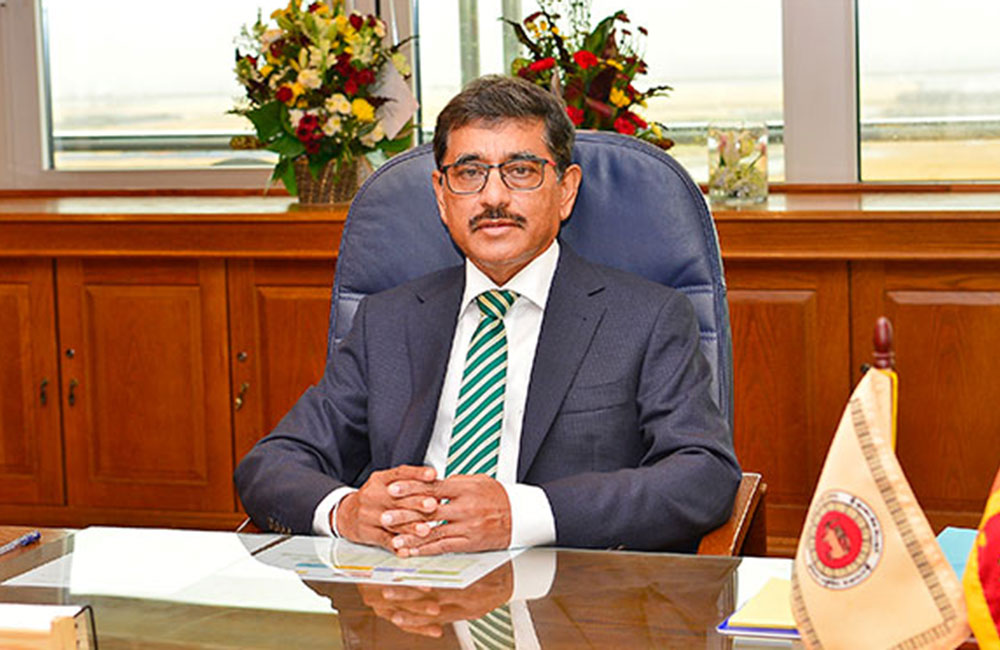
Dr. Nandalal Weerasinghe makes the list of the world's 21 top "A" Grade Central Bank Governors
Sri Lanka's Dr. Nandalal Weerasinghe has made the list of the world's 21 top "A" Grade Central Bank Governors of the Global Finance Magazine.
The Central Banker Report Cards, published annually by Global Finance since 1994, grade the central bank governors of 101 key countries and territories including the European Union, the Eastern Caribbean Central Bank, the Bank of Central African States, and the Central Bank of West African States.
Grades are based on an “A” to “F” scale for success in areas such as inflation control, economic growth goals, currency stability, and interest rate management.
“A” represents an excellent performance down through “F” for outright failure.
Meanwhile, governors who earned an “A-” grade included, Colombia’s Leonardo Villar, Dominican Republic’s Hector Valdez Albizu, Asgeir Jonsson of Iceland, Indonesia’s Perry Warjiyo, Mexico’s Victoria Rodriguez Ceja, Morocco’s Abdellatif Jouahri, Norway’s Ida Wolden Bache, Lesetja Kganyago of South Africa and Rhee Changyong of South Korea.
Shaktikanta Das has been placed at the top of the list of three central bank governors, by US-based Global Finance magazine.
He is followed by Switzerland’s Thomas J Jordan and Vietnam’s Nguyen Thi Hong.
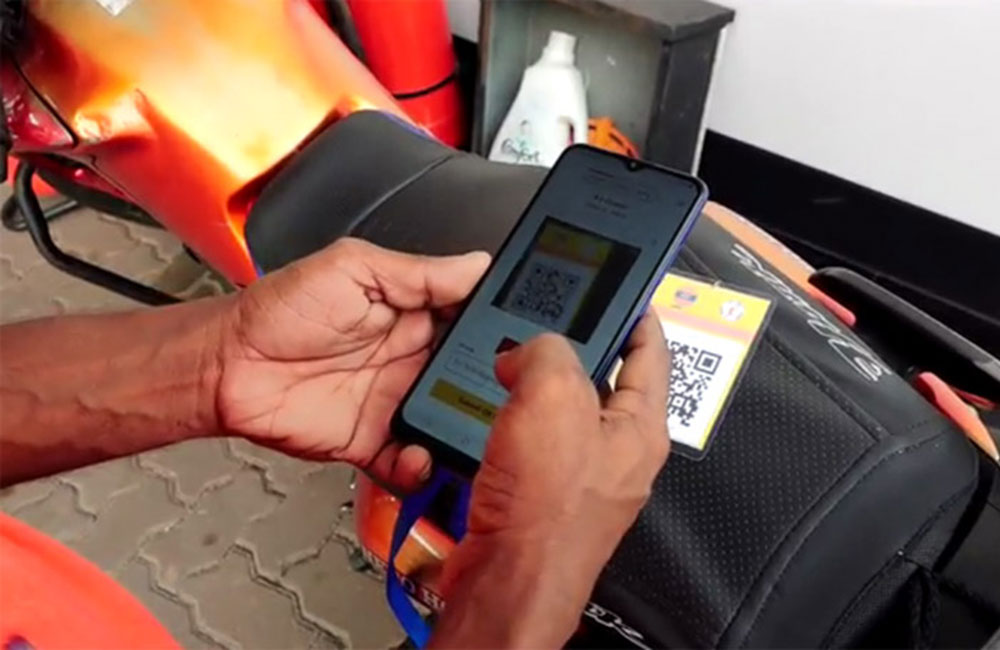
QR-based fuel pass to be discontinued
The QR-based system to pump fuel will be discontinued with effect from Friday (1).
This was announced by the Minister of Power and Energy during a media briefing in Colombo.
In August 2022, Sri Lanka introduced the National Fuel Pass QR-based fuel rationing system after long queues formed at filling stations, in the crisis-hit country.
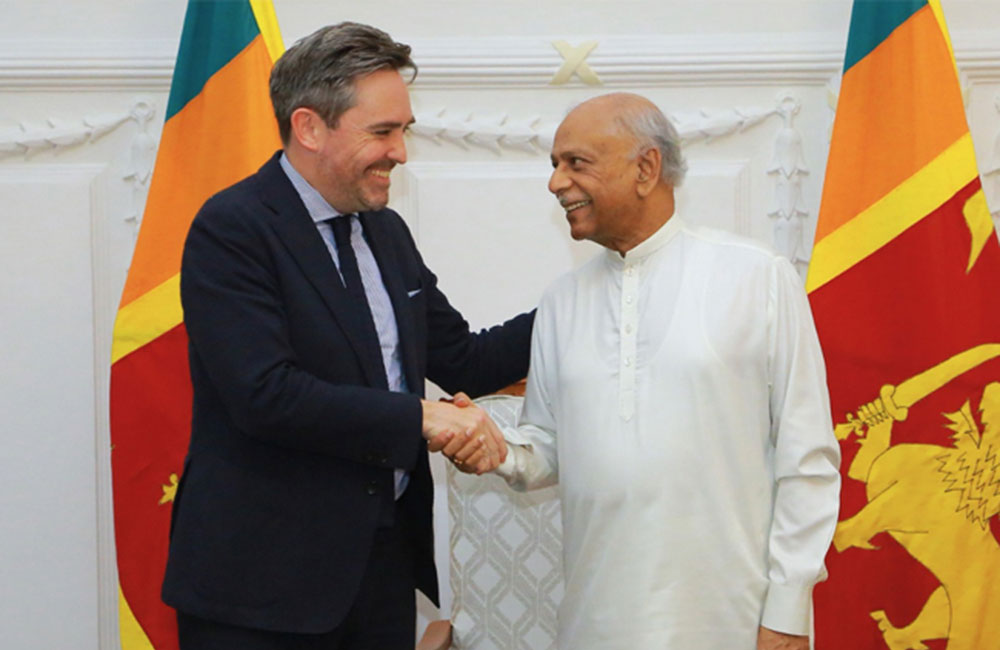
UN envoy commends Sri Lanka’s economic recovery, assures fullest cooperation
Marc-Andre Franche the newly appointed United Nations Resident Envoy during a meeting with Prime Minister Dinesh Gunawardena at Temple Trees yesterday (01) commended Sri Lanka’s economic recovery from an unprecedented crisis and assured continuous support for the development process.
Franche pointed out that Sri Lanka is heading back in the right direction, but the next couple of years may be very difficult for not only the island nation, but also most of the countries due to the global economic downturn.
Prime Minister Dinesh Gunawardena in response noted that the government of Sri Lanka has taken a number of initiatives to boost food production in the island nation and guarantee food security. Along the way, Sri Lanka expects not only being self sufficient in food, but also growth in foreign exchange through exports, he emphasised.
He added that measures undertaken to address the issues of individuals affected by thirty years of war are already in motion, adding that there is a significant progress, such as the return of over 95 per cent of land in the North and East parts of the country that was confiscated during the conflict.
Further, land mines have been removed from the so that farming will no longer become a problem, and LTTE detainees have been released, whilst the fisheries sector has regained normalcy, Gunawardena told Franche.
Meanwhile, the two parties also discussed Sri Lanka’s development initiatives related to Sustainable Development Goals (SDGs), green economy, social cohesion and social protection.
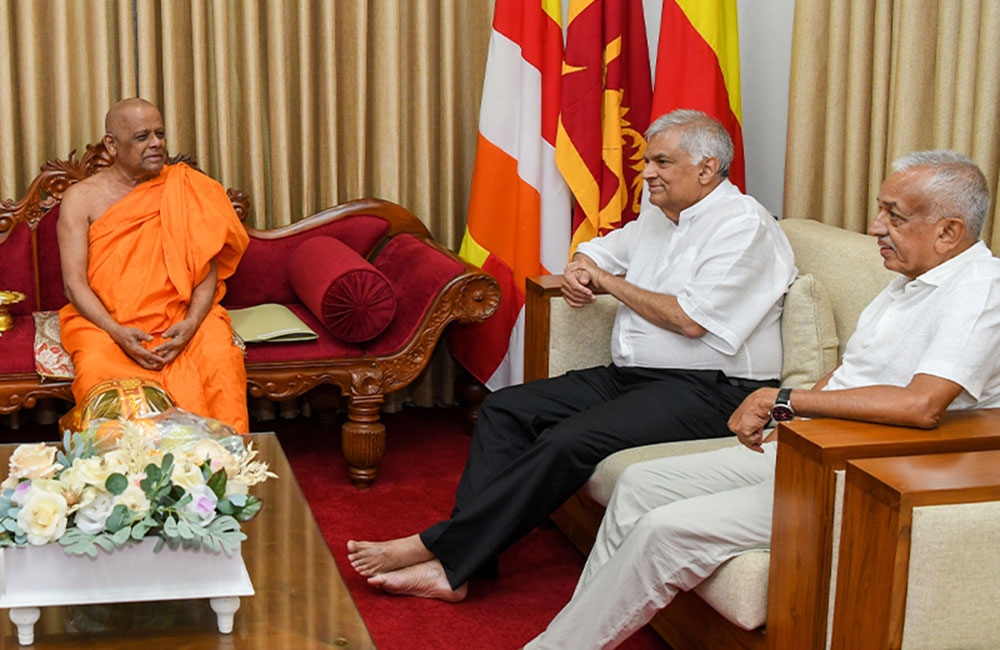
“Local banks are grappling with challenges”
President visits Chief Prelates and Anunayaka Theras of Malwathu and Asgiri Chapters and receives blessings
The government remains steadfast in its commitment to safeguarding religious shrines and archaeological sites.
Committees, led by religious leaders from respective provinces to address religious concerns in the North and East- President Ranil Wickremesinghe.
The Most Venerable Anunayaka of the Asgiri Chapter Anamaduwe Dhammadassi Thera said that at a time when the country is facing daunting challenges, President Ranil Wickremesinghe’s significant contributions deserve collective endorsement for the progress of the nation.
The Most Venerable Dhammadassi Thera conveyed that it is lamentable that certain individuals fail to comprehend the President’s endeavours to rejuvenate Sri Lanka in the aftermath of adverse circumstances. He expressed confidence that the programs initiated by the President for the nation will undoubtedly receive the blessings of the Maha Sangha.
The Anunayake Thera revealed these yesterday afternoon (29) when President Ranil Wickremesinghe visited the historic city of Kandy. The President received Blessings from the esteemed Malwatu and Asgiri Maha Nayaka Theras, as well as the Anunayake Theras.
Commencing his visit at the Malwatu Maha Vihara, President Wickremesinghe engaged in a brief dialogue with the Chief Prelate Most Venerable Sri Sumangala Thera. President Wickremesinghe received blessings and the Theras chanted Seth Pirith and extended their blessings.
Furthermore, President Wickremesinghe visited the Anunayaka Thera of the Malwatu Chapter, the Most Venerable Dimbulkumbure Sri Vimaladhamma Thera, engaging in a brief exchange of thoughts.
Subsequently, President Ranil Wickremesinghe arrived at the Asgiri Maha Viharaya, where he was bestowed with blessings from the Most Venerable Warakagoda Sri Gnanarathana Thera, the Chief Prelate of the Asgiri Chapter.
Venerable Dr. Muruddeniye Sri Dhammarathana Nayaka Thera, the Custodian of the historical Muthiangana Rajamaha Vihara, also graced the occasion.
In the meantime, the President participated in religious ceremonies at the Asgiriya Gedige Raja Maha Viharaya and received blessings.
During his interaction with the Anunayaka of the Asgiri Chapter, the Most Venerable Dhammadassi Thera, President Wickremesinghe shed light on the government’s reform program aimed at revitalizing the nation’s economy, including the agricultural modernization initiative.
Addressing those gathered, the Most Venerable Anamaduwe Dhammadassi Thera stated:
“Your role during this difficult period is paramount for the nation. The country once faced a significant economic downturn, and your efforts in leading its recovery are commendable. You’ve even personally endured losses, including property and your home. Your aptitude to offer solutions to the prevailing issues is noteworthy. We earnestly pray for divine support, safeguarded by the blessings of the Gods, Goddesses and the protection of the Most Sacred Tooth Relic.”
The actions of the former President in safeguarding Buddhist shrines in the Eastern Province via the Defence Secretary were acknowledged. A program was instituted to ensure their protection. Also, photo reports were submitted, however, concerns were raised about the current status of this endeavour.
Additionally, the issue of external interference creating conflicts in the vicinity of the Kurundi Viharaya was highlighted, urging focused attention.
Elaborating his comments, President Ranil Wickremesinghe stated:
“Addressing the country’s economic landscape, we are currently transitioning out of financial turmoil. This revival is being facilitated through the implementation of a foreign debt optimization program and a series of substantial economic reforms.
Presently, local banks are grappling with challenges, leading to restricted access to funds. A significant number of domestic banks find themselves burdened with debt. Should the banking system falter, it could precipitate severe financial repercussions. Moreover, the Central Bank has received liabilities from the Employees Provident Fund. Endeavours are underway to convert these liabilities into long-term bonds. While a marginal disparity in interest rates exists, it bears no detrimental impact on depositors. Notably, an agreement was reached last year to grant a 9 per cent interest to Employees Provident Fund depositors and I am steadfast in my commitment to enshrine this minimum interest rate into law.
Additionally, our efforts encompass the formulation of a new Central Bank Act. This step will pave the way for subsequent negotiations with our creditor nations. Concurrently, we will address personal loans, aspiring to either substantially reduce our debt burden or devise a sustainable repayment plan over the long term.
It is our aspiration to convene discussions and finalize agreements with the International Monetary Fund by the conclusion of September or the onset of October. This accomplishment would signify our emergence from the shackles of bankruptcy, enabling us to engage in economic transactions with renewed ease.
Acknowledging the trade imbalance where imports surpass our exports, we are resolutely charting a course towards cultivating a competitive economic landscape. Central to this endeavour is the establishment of an export-oriented economy.
Indeed, the potential to harvest economic gains through regional competitiveness is tangible. Subsequently, a comprehensive loan payment system is being meticulously devised.
Presently, our nation finds itself in a position that differs from the status it held in 1948. Thus, it becomes imperative for us to gaze toward the future and establish an education system that caters to the evolving needs of our country. I can merely provide the initial spark. The young minds of our land must be prepared to champion this endeavour.
In pursuit of this goal, we must cultivate a leadership culture. This endeavour necessitates a generation equipped with a novel vision and an unwavering drive to progress in tandem with technology. The global discourse revolves around Artificial Intelligence, a topic even touched upon in the teachings of Buddha Dharma. Remarkably, among the Theravada Buddhist countries, no nation has yet fully embraced this emerging paradigm. However, Thailand has forged ahead, serving as an exemplary role model. It is my fervent belief that both Sri Lanka and Thailand should take the lead. In light of this, negotiations for a new trade agreement with Thailand are currently underway.
Consequently, these two Theravada Buddhist nations are poised to join hands economically. I extended an invitation to the Thai government to formalize this agreement in February next year. I also sought the opinion of the esteemed Mahanayake Theras on the possibility of signing this historic pact right here in Kandy. I hold the conviction that this would herald a promising commencement.
Moreover, we have laid out extensive plans for the implementation of an agricultural modernization program. This initiative holds the potential to yield 7 or 8 metric tons of paddy per hectare. In comparison, Australia boasts a production of 10 metric tons per hectare. In regions of our own country, such as Hambantota, we have achieved an impressive yield of 11 metric tons per hectare.
Furthermore, it is crucial to emphasize that these activities are being pursued with a steadfast commitment to upholding the principles of Buddhism. We hold in high regard the protection of all Buddhist shrines, considering it a paramount duty. In this spirit, we have taken measures to address the challenges faced by the Kurundi temple in the Northern Region. Encouragingly, the Sinhalese, Muslim and Tamil communities of that area have united in agreement, pledging not to involve external entities. In times past, this region was characterized by harmonious coexistence among its inhabitants. Regrettably, the introduction of external groups has given rise to these recent complications. I have also communicated this matter to the leader of Vavuniya.
In light of these circumstances, it is imperative that access to this area is restricted exclusively to those within our sphere of influence. To ensure the integrity of our actions, the Department of Archaeology has been directed to conduct a thorough investigation. These actions align with the mandates of the Antiquities Act, underscoring our commitment to preserving our cultural heritage.
Moreover, we are poised to undertake an excavation initiative at the esteemed Maha Viharaya. The on-going excavation efforts in the northern regions continue to yield valuable insights, and these undertakings remain in active progress.
I wish to clarify that the preceding government took prompt action by deploying the armed forces to expedite the excavation process. However, a definitive course of action is still pending, awaiting the decision of the Department of Archaeology. Rest assured, our future steps will be in alignment with the verdict provided by this authoritative body. It is imperative to underscore our unwavering commitment to safeguarding these sacred regions.
Our efforts extend to the safeguarding of all Buddhist shrines. Our approach begins with the identification of archaeological sites of significance. Following this crucial step, a comprehensive investigation ensues. Furthermore, it is crucial to highlight our dedication to addressing any challenges faced by other religious communities in this context.
I must emphatically state that we remain resolute in preventing external entities from instigating disturbances. To foster harmony and prevent potential conflicts, we are actively working towards establishing a committee comprised of esteemed religious leaders from the respective provinces. The collective efforts of these leaders are poised to avert any arising conflicts.
Furthermore, it is worth noting that the Ministry of Buddha Sasana is presently engaged in substantial discussions concerning the development of new legislation pertaining to Buddhism. This significant undertaking has been initiated, a formal communication has been extended by both the Malwathu and Asgiri Chapters. Our focus remains resolute on this endeavour. To ensure a comprehensive perspective, we have proactively solicited input, suggestions and comments from various denominations.
Furthermore, a comprehensive effort has been made to gather insights and recommendations from diverse denominations. This concerted outreach aims to ensure that our approach is comprehensive and reflective of the collective wisdom from a wide range of perspectives.
Even in the pre-independence era, the “Viharagam Dewala Act” was instituted to safeguard the sanctity of the Sacred Dalada Maligawa and facilitate the continuity of these sacred practices. Similar legislative measures existed during the 19th century, underscoring the historical significance of such protective laws.
In accordance with the provisions stipulated in the 13th Amendment of the Constitution, a pivotal amendment to land legislation was ratified two decades ago. With a commitment to enhancing its framework, we have undertaken efforts to revise its composition. To this end, a committee has been appointed, comprising nine representatives, one from each province and twelve individuals holding diverse roles within the central government.
Moreover, we are actively working towards the formulation of a comprehensive national policy pertaining to land use. This strategic framework will pave the way for well-defined guidelines governing land utilization. While we have not introduced any further amendments related to land within this context, we firmly believe that legislative matters concerning land should be addressed at the national level. Subsequently, the implementation of these policies falls under the purview of provincial councils. We are steadfastly committed to maintaining the momentum of this initiative in accordance with the directives set forth by the National Land Commission.
Former Minister Malik Samarawickrama and Additional Secretary to the President Kamal Pushpakumara were also present on this occasion
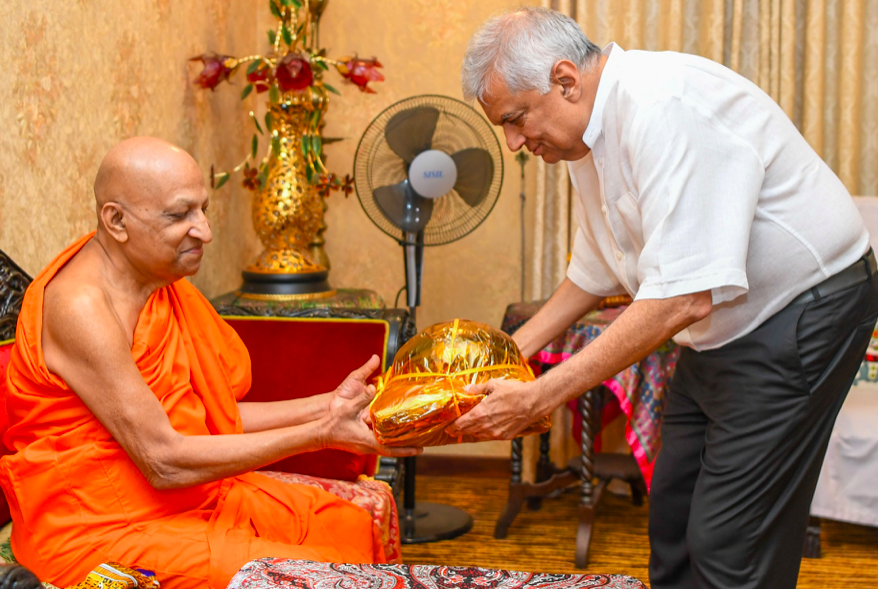
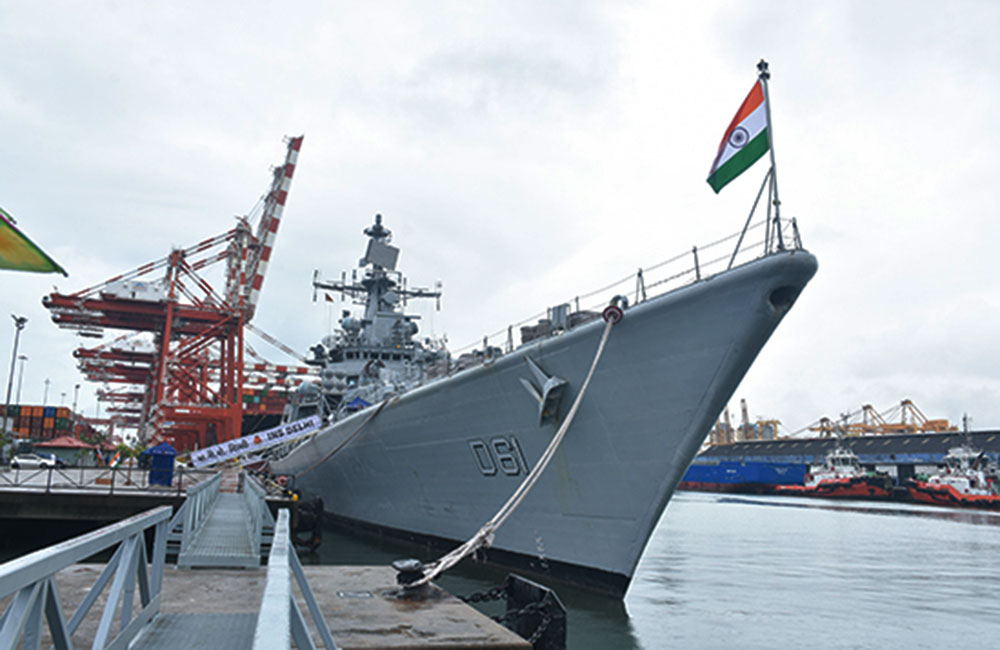
Indian warship in Colombo ahead of Defence Minister visit to Sri Lanka on Saturday (2)
The Indian Naval Ship (INS) ‘Delhi’ arrived at the port of Colombo on a formal visit this morning (01st September 2023). The visiting ship was welcomed by the Sri Lanka Navy in compliance with naval tradition.
INS ‘Delhi’ is a 163.2m long Destroyer manned by a crew of 450 and the ship is commanded by Captain Abhishek Kumar.
The Commanding Officer of the ship called on Commander Western Naval Area, Rear Admiral Suresh De Silva at the Western Naval Command Headquarters this morning.
During the ship’s stay, the crew will take part in several programmes organized by the Sri Lanka Navy, with a view to promoting cooperation and goodwill between two navies. They are also expected to visit some of the tourist attractions in the country.
In addition, INS ‘Delhi’ has made arrangements to open the ship for the visit of school children. Further, training exchanges are scheduled to be held aboard, involving naval personnel from both navies.
The ship is expected to depart the island on 03rd September and she will conduct a Passage Exercise (PASSEX) with a ship of Sri Lanka Navy, off Colombo.
At the same time, the Defence Minister of India, Shri Rajnath Singh is scheduled to visit Sri Lanka on 02-03 September 2023 to review bilateral defence ties.
During the visit, Shri Rajnath Singh will hold talks with President and Defence Minister of Sri Lanka Ranil Wickremesinghe and Prime Minister Dinesh Gunawardena.
The entire gamut of India’s defence ties with Sri Lanka will be reviewed during these meetings. The Defence Minister will also visit Nuwara Eliya and Trincomalee.
This visit of Shri Rajnath Singh reiterates India's continued commitment in furthering the existing warm and friendly relations with Sri Lanka. The visit is an important landmark in deepening the enduring bonds of friendship between the two countries in the defence sphere.
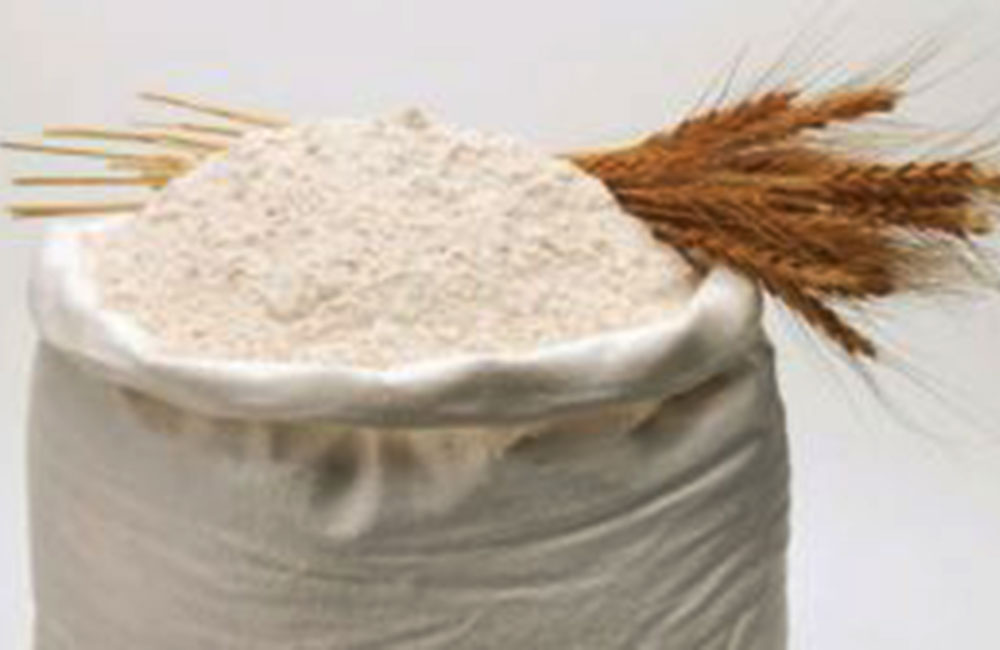
Increase in Import Duty on Wheat Flour Takes Effect
The import duty on wheat flour has been revised effective as of midnight yesterday.
This adjustment entails an increase in the tax imposed on a kilogram of wheat flour from 16 rupees to 27 rupees.
Meanwhile the system of import licenses for grain has been cancelled since midnight yesterday.
The Minister of State for Finance Ranjith Siambalapitiya says that this is expected to abolish the existing monopoly for the import of wheat flour and reduce the price through a competitive market system.
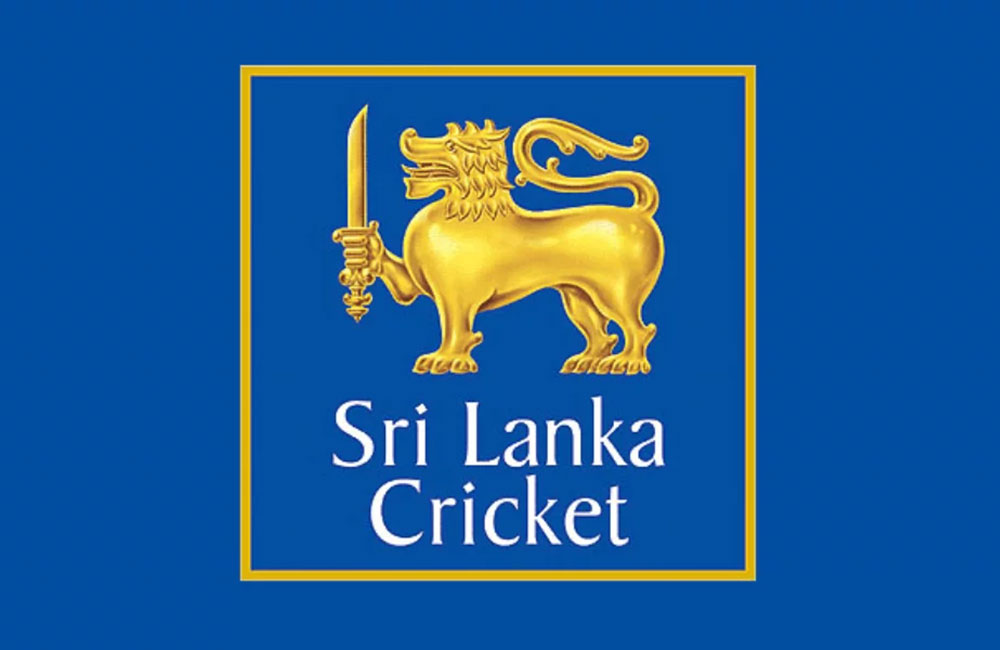
SLC suspends all domestic tournaments over issue with Sports Ministry
Sri Lanka Cricket has decided to immediately halt all board-conducted domestic tournaments.
This includes the ongoing Major Club 3-Day Tournament and also the Invitational Club Tier ‘B’ 3-Day Tournament.
The decision follows the ratification of an appeal advisory committee decision by the Minister of Sport and Youth Affairs.
The Director General of Sports has issued a written instruction dated August 25, 2023, on Sri Lanka Cricket pursuant to this.
Accordingly, Sri Lanka Cricket is compelled to suspend all SLC-organized domestic cricket tournaments until clarification is obtained on the same.
(Sri Lanka Cricket)
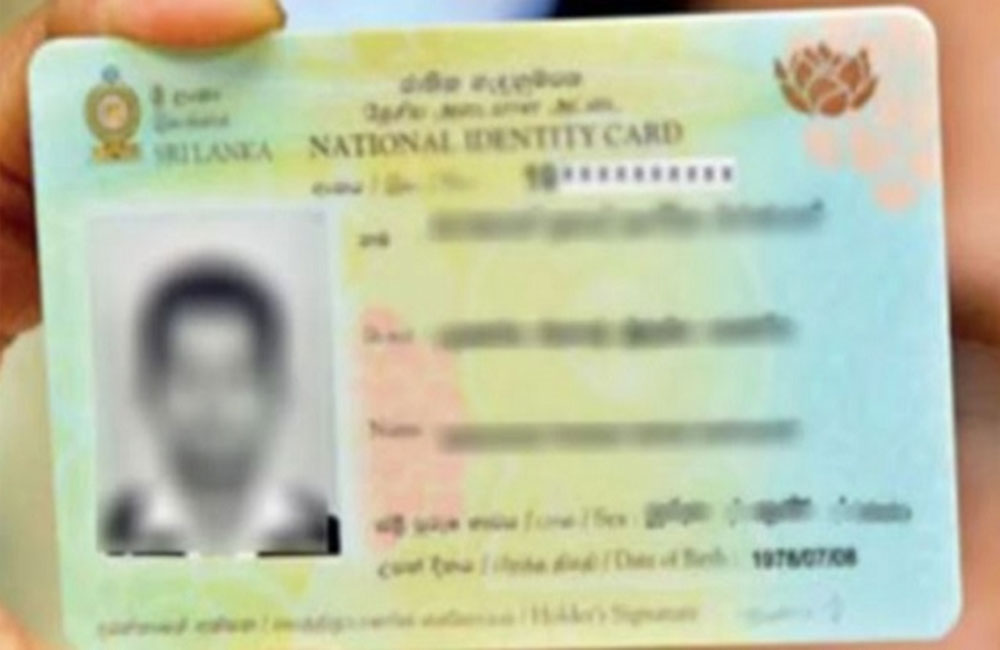
NICs for those without birth certificates
A program is now in place to issue national identity cards to people above the age of 40 who are unable to obtain a national ID card due to the absence of a birth certificate.
A circular on the matter was issued to all Divisional Secretaries, Commissioner General of the Department for Registration of Persons Pradeep Saputhanthri said.
Sri Lankan citizens above 40, who have permanent residence in a Grama Niladhari division, and are registered in the voter's register, who have not yet obtained a national ID card due to the absence of a birth certificate, will have the opportunity to apply for this.
Page 254 of 684